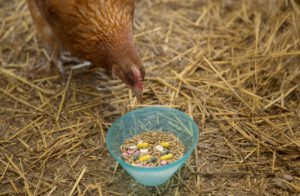With the global threat of anti-microbial resistant looming, a team of international agricultural experts are arguing for reduced antibiotic use in animals, as it can lead to drug-resistant infections in both animals and humans.
 In a policy forum published today in Science, the researchers propose three actions to curb antibiotic use in animals. First, they propose enforced global caps, as antimicrobials in food animals could be reduced between 10 to 80 per cent by 2030 (a policy already shown to be effective in Europe).
In a policy forum published today in Science, the researchers propose three actions to curb antibiotic use in animals. First, they propose enforced global caps, as antimicrobials in food animals could be reduced between 10 to 80 per cent by 2030 (a policy already shown to be effective in Europe).
They also say that reducing meat consumption could also be an effective strategy, and finally they propose a global user fee on veterinary antimicrobial use. This consumer vet fee could reduce global consumption by a third and would create revenue that could be invested back into research for new antibiotics, they say.
The SMC gathered expert reaction to the forum article, please feel free to use these comments in your reporting.
Professor Kurt Krause, Department of Biochemistry, University of Otago, comments:
“The Policy Forum on Global Health reported in Science this week that aims to significantly reduce the global use of antibiotics in animals is an ambitious plan that has the potential to help address the global increase in antibiotic-resistant pathogenic bacteria. The recommendations are three-fold and include caps on veterinary antibiotic usage, mandated reductions in per capita meat consumption and user fees on the veterinary use of antimicrobials.
“I am enthusiastic about the goals behind the elements proposed in this document, especially if they are applied globally on a level playing ground. But I am concerned that they will be difficult and costly to police and more difficult to enforce, if they progress beyond guidelines to actual caps.
“I am also not comfortable with surcharges on the veterinary usage of antimicrobials that are directed at ill or diseased animals – which is very different from their use simply to help animals gain more weight – and I suspect the majority of people would favour the treatment without penalty of animals that need veterinary care.
“Taken in sum I would view this proposal as a starting point of a dialogue that goes a long way towards addressing a vitally important medical issue, but which will need some adjustments before its application.”